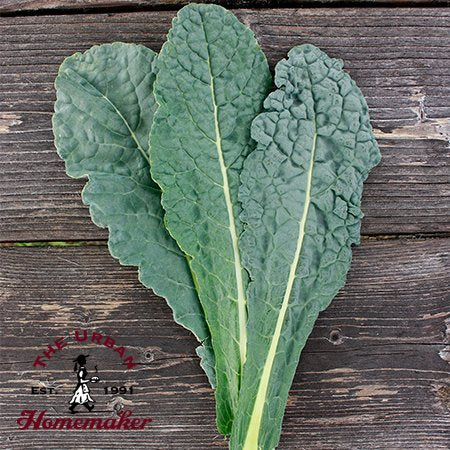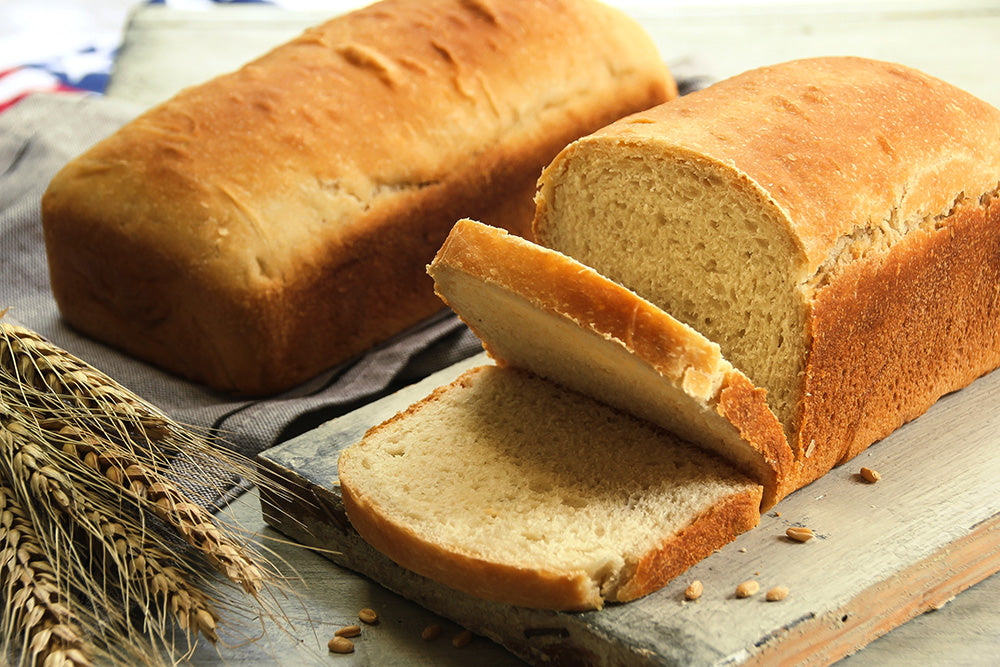Skip to product information


Lacinato Dinosaur Kale - Certified Organic
$3.95
Shipping calculated at checkout.
| Soil and Nutrient Requirements |
| Kale and Collards thrive in well drained fertile soil high in organic matter, with pH 6.0- 7.5. They can tolerate slightly alkaline soil. A general guideline is 2-3 lbs of 8-16-16 fertilizer over 100 sq ft of garden area two weeks before planting. If boron is not present in your soils, consider adding 1 Tbs per 100 sq ft. |
| Position |
| Full sun is best, although light shade can help plants tolerate hot weather. |
| Seeding Depth |
| 1/4-1/2". |
| Plant Spacing |
| Babyleaf- Direct seeding: ~60seeds/ft in 2-4" bands; Full Size- 12-18” |
| Row Spacing |
| 18-30” for full size |
| When to Sow |
| Days to maturity are from direct seeding, subtract 2 weeks if transplanting. Direct sow as soon as soil can be worked or start transplants 4 weeks before planting date. Plant baby leaf every 4-5 weeks for a continual harvest. Sow fall plantings two months before first expected frost for full size and up until frost for baby leaf. |
| Frost Tolerant |
| Yes. Kale is very hardy, withstanding even a hard freeze. Cold weather causes kale to become very sweet. |
| Drought Tolerant |
| Kale can tolerate drought, but the quality and flavor of the leaves will suffer. |
| Heat Tolerant |
| Collards are a better choice than kale for hot weather. |
| Seed Specs |
| 5,625-9,375 seeds/oz (7,500 avg), 90-150M seeds/lb (116M avg). |
| Seeding Rate |
| Babyleaf- 116 M seeds/100’ bed (1 lb), 1.6MM seeds/1,000’ bed (10 lbs) using ~1,000 seeds/ ft in 16 rows on a 36” bed. Full Size- 68M seeds/acre (12oz) using 3 seeds/10”, 30” row spacing. M=1,000, MM=1,000,000 |
| Harvest |
| Harvest full size leaves when desired. Kale flavor sweetens after light frosts. Kale and collards are both very cold hardy, overwintering in most climates to some degree. |
| Storage |
| Cool leaves in cold water at harvest and store in plastic in fridge. In late fall, cut the heart of the plant and store just above freezing in a plastic bag for a few weeks. |
| Pest Info |
Kale and collards do not usually suffer too much from pest damage, but they are subject to the same insect pests as cabbage, cauliflower, and broccoli.
|
Pickup currently not available

Our Famous
Whole Wheat Bread Recipe
Grandma Marilyn's Famous Bread Recipe is VERSATILE! Use it to make cinnamon rolls, pizza, bread sticks, and more.